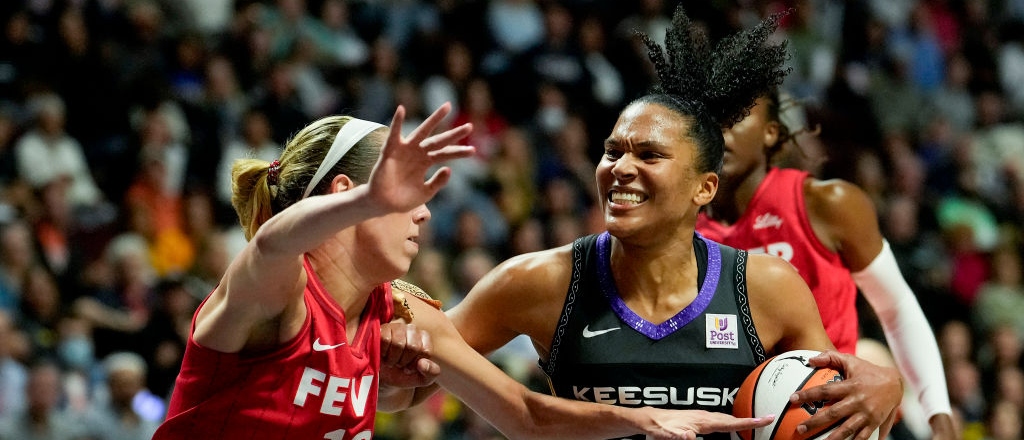
The Connecticut Sun ended the Indiana Fever’s season on Wednesday night in a thrilling 87-81 win in Game 2 of their first round series. Alyssa Thomas led the way with 19 points and 13 assists, as the Sun withstood every run from Caitlin Clark and the Fever to respond with a counterpunch of their own.
The win set up a second round series between the Sun and Lynx that figures to be fantastic, while putting an end to the biggest story in the WNBA this season. Clark’s rookie year was nothing short of spectacular, as the No. 1 pick in this year’s Draft set rookie records and led Indiana to its first playoff berth since 2016 in her first season. Her popularity led the Fever to smash attendance records, both at home and on the road, as well as TV ratings records on every network that carries WNBA games nationally.
Clark has expanded the WNBA’s reach, but not everyone that claims themselves as a Clark fan has come into the league in good faith. Clark has been used as a proxy in culture war arguments, and some fans have crossed the line with racist comments towards other players. Clark has called it “unacceptable” for so-called fans to use her name to push negative agendas, but the issues persist. Most recently, Sun guard DiJonai Carrington has gotten racist attacks online after an accidental eye-poke in Game 1, which got spun by some as being an intentional act despite Clark laughing off the idea it was anything purposeful.
After Game 2, Thomas spoke out on the verbal abuse Carrington and the Sun as a whole have dealt with from Fever fans, calling it unacceptable and noting there’s no place for that kind of behavior in the game.
The full answer from Alyssa Thomas about their treatment from Fever fans.
AT is a non-nonsense interview. A minute from her is no small thing. pic.twitter.com/94PHmV6ooF
— Gabby Lucivero (@GLucivero) September 26, 2024
While there are no easy answers for how to stop this kind of behavior, Thomas did hope the Fever would “check their fans” and make it clear that there’s a difference between supporting the team and being derogatory towards opposing players. There is a tendency to be wary of the blowback from making statements towards your own fans, but anyone that would stop supporting you for asking them not to make racist or hateful comments isn’t someone you should want to welcome into your fan base anyways.
At Game 2, there were multiple fans heckling Carrington and the Sun. It also is not just an issue for the Fever to address, as Clark had to ask for a fan to be removed from near courtside for saying something that crossed the line to her. All of that prompted the WNBA to release a statement after the game that they would be monitoring racist, derogatory, and threatening comments made towards players.
As many pointed out, the statement felt like it came a bit late, as this has been an on-going issue. Angel Reese spoke earlier this year about how she’s dealt with racism, death threats, and people coming to her address. While there is, unfortunately, no way to stop people from saying terrible things online, the league certainly could be more proactive with fans in the arena and hopefully that will be a greater point of emphasis next season.
The surge in popularity this past season was great for the WNBA’s bottom line, but for a league that champions diversity and inclusion, they have some serious work ahead of them for how to continue fostering that environment. Clark’s presence has accelerated a lot of things for the WNBA, and the challenge for the league is to keep up with changing demands, both positive and negative, with protecting players as best they can being chief among them.
